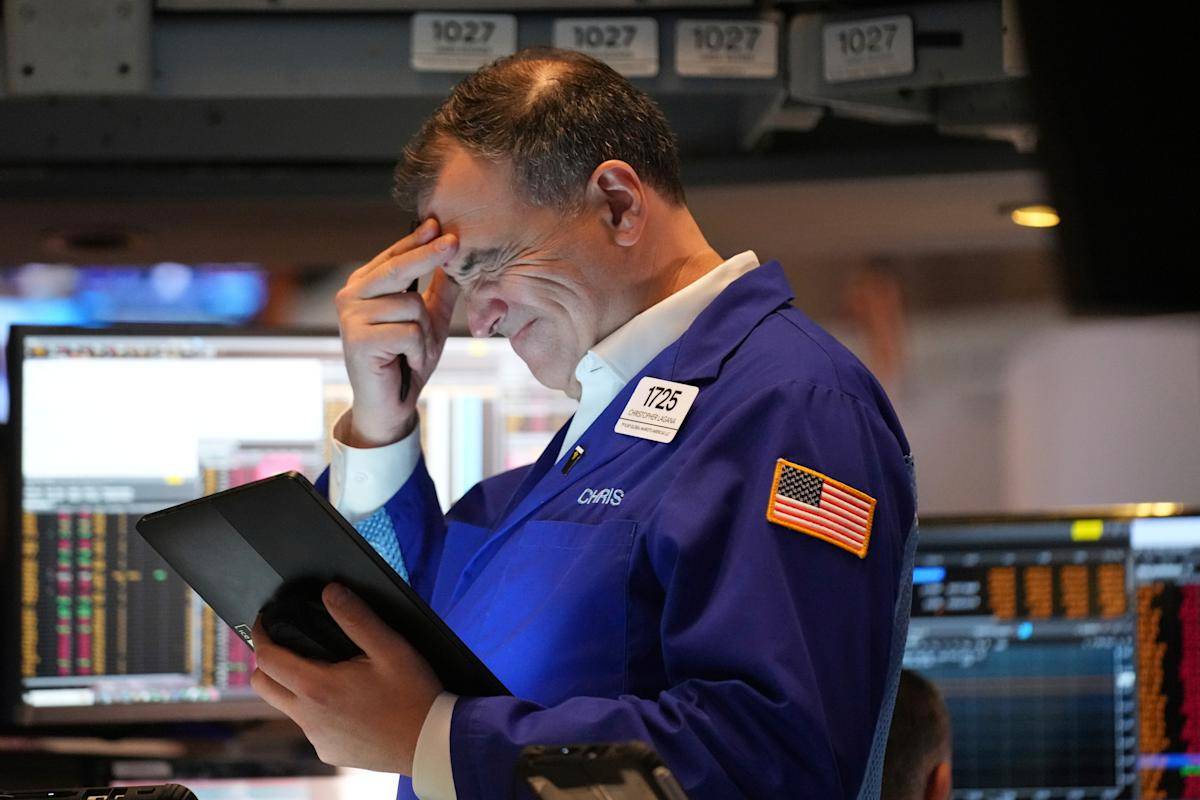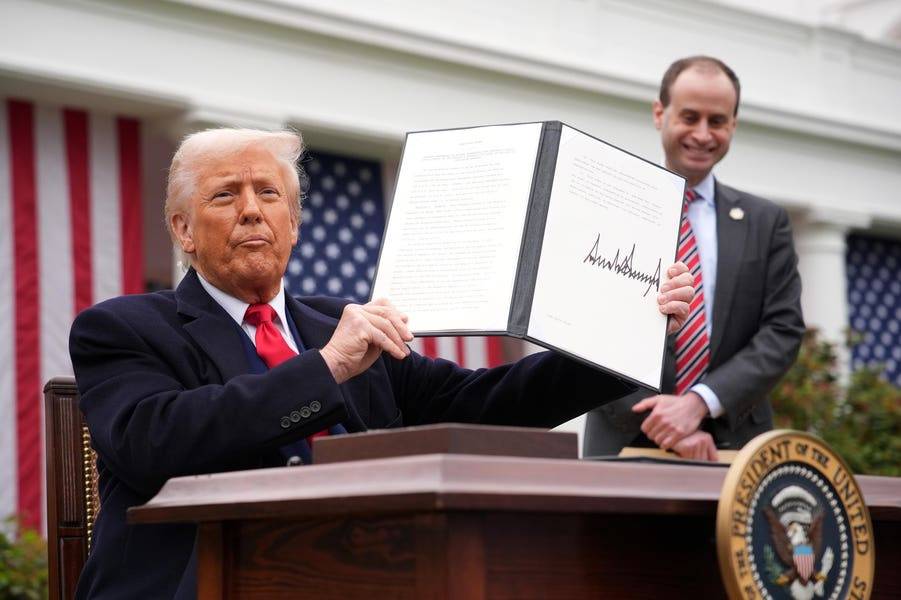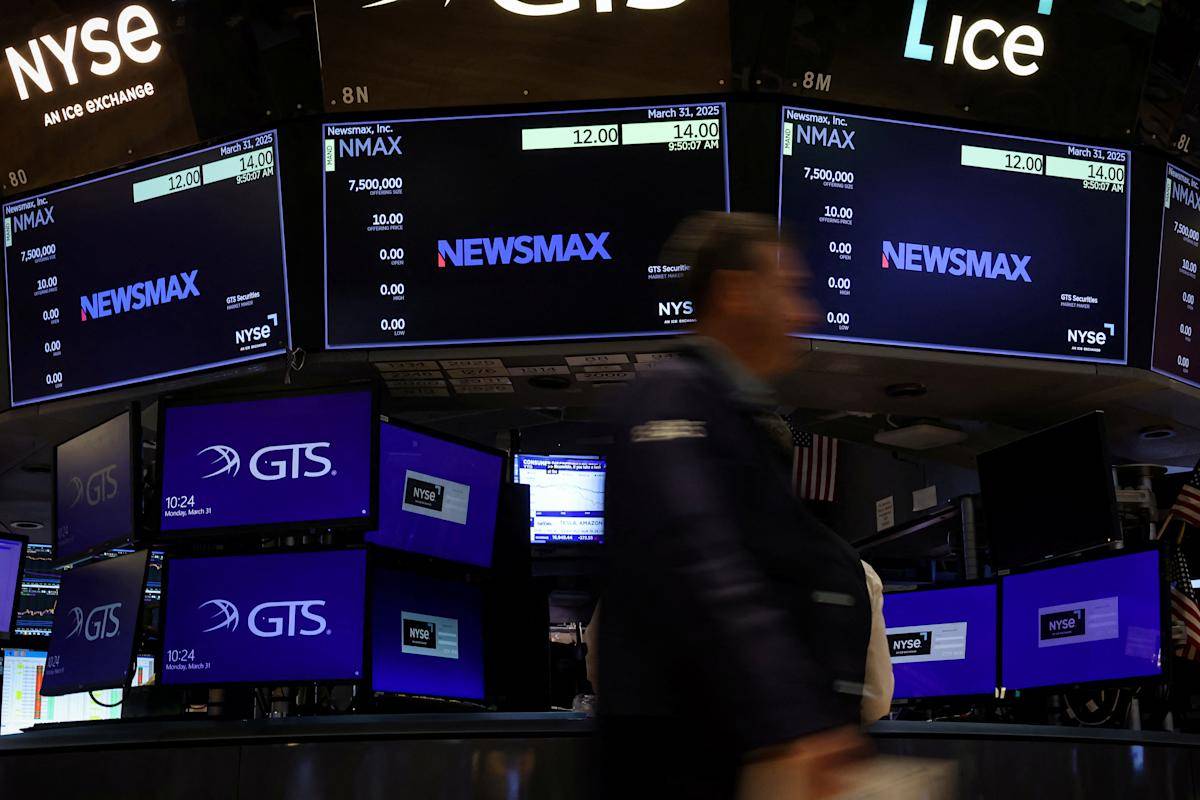Market Impact
In the wake of Trump’s announcement, U.S. stock futures plummeted sharply. The Dow Jones Industrial Average futures dropped by over 1,000 points, with the S&P 500 futures losing 3.9% and Nasdaq-100 futures declining by 4.7%. Companies heavily reliant on imports, such as Dollar Tree and Five Below, saw substantial declines, with Dollar Tree down 11% and Five Below experiencing a 15% drop. Major brands like Nike and Apple also saw significant declines, with each falling about 7%.
Economic Concerns
The sudden imposition of a 10% tariff on all trading partners, along with additional levies on specific countries deemed “bad actors,” has raised fears of a deepening trade war. Economists warn that these tariffs could lead to higher prices and reduced consumer demand, potentially even triggering stagflation—a combination of stagnant economic growth and inflation. Tesla, for example, fell by 6%, while Nvidia saw losses of 4.5%. The concern among investors reflects broader worries about how increased import costs could impact the global economy.
Global Market Reactions
Global markets were also affected, as the sudden escalation in trade tensions led to a surge in gold prices, typically seen as a safe-haven asset during economic uncertainty. The reaction was not limited to the U.S., with investors worldwide bracing for potential trade disruptions. While some analysts believe that certain tariffs might be watered down or rescinded over time, others caution against underestimating the potential for prolonged economic strain.
Expert Insights
Industry experts like Jim Chanos of Kynikos Associates and Brendan Walsh from Macro Policy Partners have noted that while the initial market response might seem muted, the full implications of these tariffs will take time to materialize. Walsh warns that the tariffs are a cornerstone of Trump’s economic policy, suggesting that they are here to stay, at least for now.
Long-Term Implications
In the long term, these tariffs could fundamentally alter the dynamics of international trade for the U.S. and its partners. While the Trump administration anticipates potential long-term benefits, such as reduced dependence on foreign goods and economic growth, many economists and investors remain skeptical. The economic impact will depend on how foreign countries respond to these tariffs and whether the tariffs help create jobs and increase domestic manufacturing as intended.
Currently, Wall Street is in a precarious position, having just concluded its most challenging quarter since 2022. The tariffs announcement has heightened the anxiety, with many investors now seeking safer assets like gold in anticipation of market volatility. As the situation unfolds, it remains to be seen how these tariffs will influence consumer spending, employment rates, and overall economic stability in the U.S. and globally.









